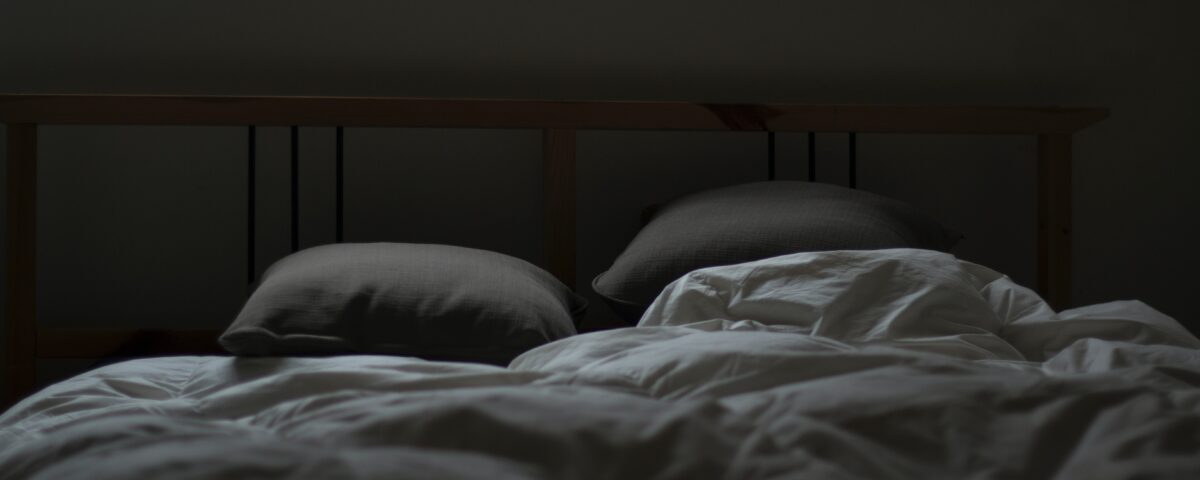Sex and sleep are two pillars of human health. Both contribute to well-being and have the potential to increase happiness. Yet many Americans struggle with both sleep dysfunction and a lackluster sex life. So, does sex help you sleep?
The relationship between sex and sleep has been diversely explored by scientific studies, aiming to understand whether better sleep aids in a more active sex life or if a satisfying sex life can contribute to improved sleep quality.
But, in short, it can be said that both are interdependent. This means engaging in sex is important for sleep, just as sleep is crucial for engaging in sex.
Adult Americans have sex 53 times a year on average, a little more than once a week, according to research from the Archives of Sexual Behavior in 2017.
For Americans, sexual health and the satisfaction derived from sex are highly important factors for their quality of life. One study even found that people with poor health had lower sexual satisfaction.
Read More: Why do women need more sleep than men?
How Sleep affects Sex
An active sex life can be a positive factor for well-being and human health. Sex can increase happiness, satisfaction, and reduce stress. The last one is primarily through releasing hormones during sex, such as oxytocin and prolactin.
Additionally, sexual activity can help reduce blood pressure and lower heart rate.
Studies have shown that men who work long hours, or work a lot at night, and have poor sleep quality are more likely to experience erectile dysfunction.
Also, research has concluded that getting enough sleep is important for healthy sexual desire, genital response, and also the likelihood of engaging in sex.
Moreover, a longer duration of sleep aids in a higher sexual desire.
But while there are many studies discussing how sex is important for overall health, it is important to understand each situation, as many people with health problems end up not having as much sex. Also, reasons affecting sexual life may also be impacting overall human health.
Therefore, it is important not to understand only one factor in your life, such as a lack of sex, as disruptive to your sleep. Just like any other, it is crucial to seek medical assistance in cases of insomnia, sleep disorders, or sleep deprivation.
Does Sex Help You Sleep?
Yes, having sex can indeed help you sleep better, but it’s not a quick fix or an overall remedy. The interplay between sex and sleep is multifaceted.
Sexual activity and intimacy can help improve sleep and overall health. Orgasms can also help, mainly due to the release of hormones that increase drowsiness and decrease stress, such as oxytocin and prolactin.
Additionally, sex reduces the production of the hormone cortisol, which is known as the stress hormone. Women with insomnia have shown that having sex with a partner before sleep helped reduce stress and maintain sleep duration. In short, they slept better after having sex.
However, engaging in sexual activity and reaching climax also triggers the release of epinephrine and norepinephrine, hormones that can induce alertness, potentially counteracting the desired relaxing effect.
So, while sex can indeed aid in falling asleep faster and staying asleep throughout the night, it’s important to attribute the right value and understanding to this relationship.
It’s not a universal remedy, and the quality of sleep can be influenced by a myriad of other factors, such as stress levels, lifestyle choices, and overall health.
Masturbation and Sleep
Having sex is not the only way to experience sexual pleasure, so the relationship between masturbation and sleep is also explored in science.
In one study, orgasms with a partner were seen as leading to better sleep outcomes, while orgasms from self-stimulation seemed to improve sleep quality and speed of falling asleep.
However, as mentioned earlier, masturbation and sexual activity should not be seen as an instant remedy for sleep problems. Each body can react differently.
For example, it is possible that the relaxation from masturbation helps you sleep, while the physical activity involved may cause alertness that keeps you awake.
How to Sleep Better
Having healthy sex is only one component of getting a good night’s sleep. Here are some tips to help improve your sleep quality:
- Stick to a consistent sleep schedule: Try to go to bed and wake up at the same time every day, even on weekends.
- Create a sleep-friendly environment: Ensure your bedroom is dark and quiet. Use comfortable bedding and invest in a supportive mattress and pillow.
- Limit exposure to screens before bed: The blue light emitted by electronic devices can interfere with your sleep. Avoid using screens at least an hour before bedtime.
- Exercise regularly: Engaging in regular physical activity can contribute to better sleep. Aim for at least 30 minutes of exercise most days of the week.
Remember, everyone is different, and it may take time to find what works best for you. If you continue to experience sleep problems, consider consulting a healthcare professional for further guidance.
Disclaimer: The information provided in this article is for informational purposes only and is not intended to substitute for professional medical advice, diagnosis, or treatment.



